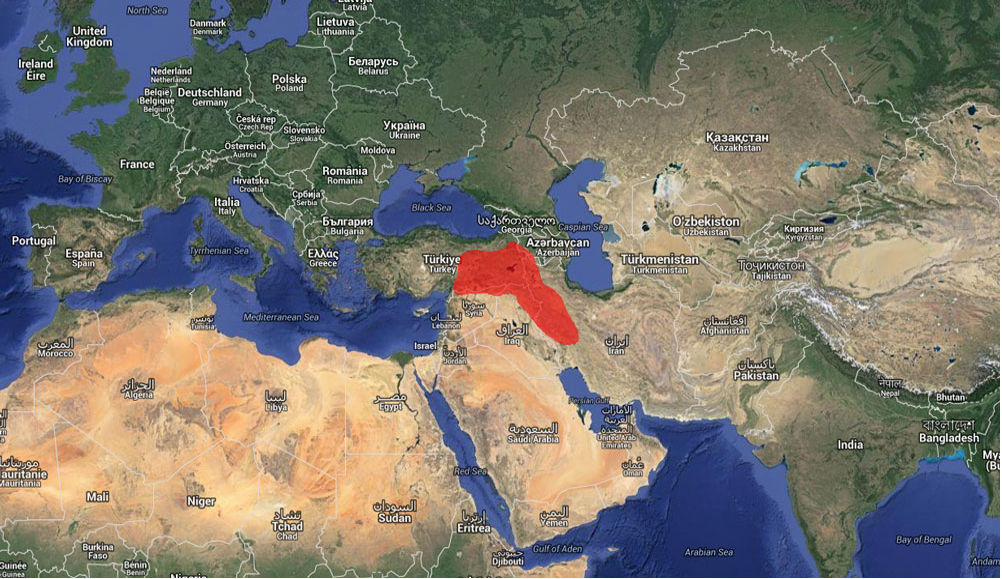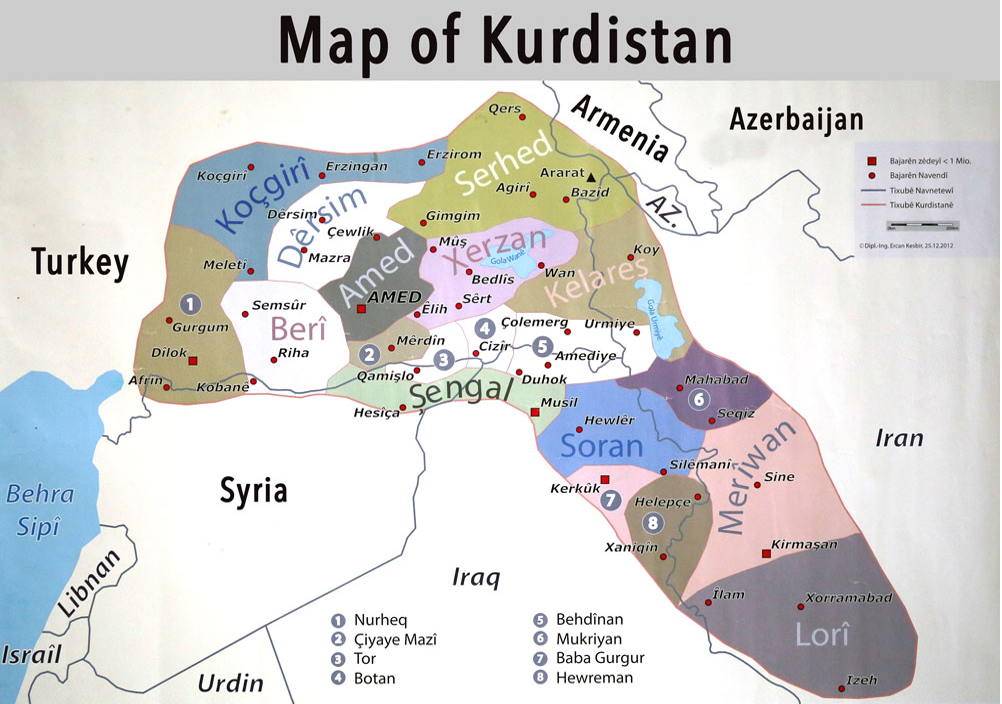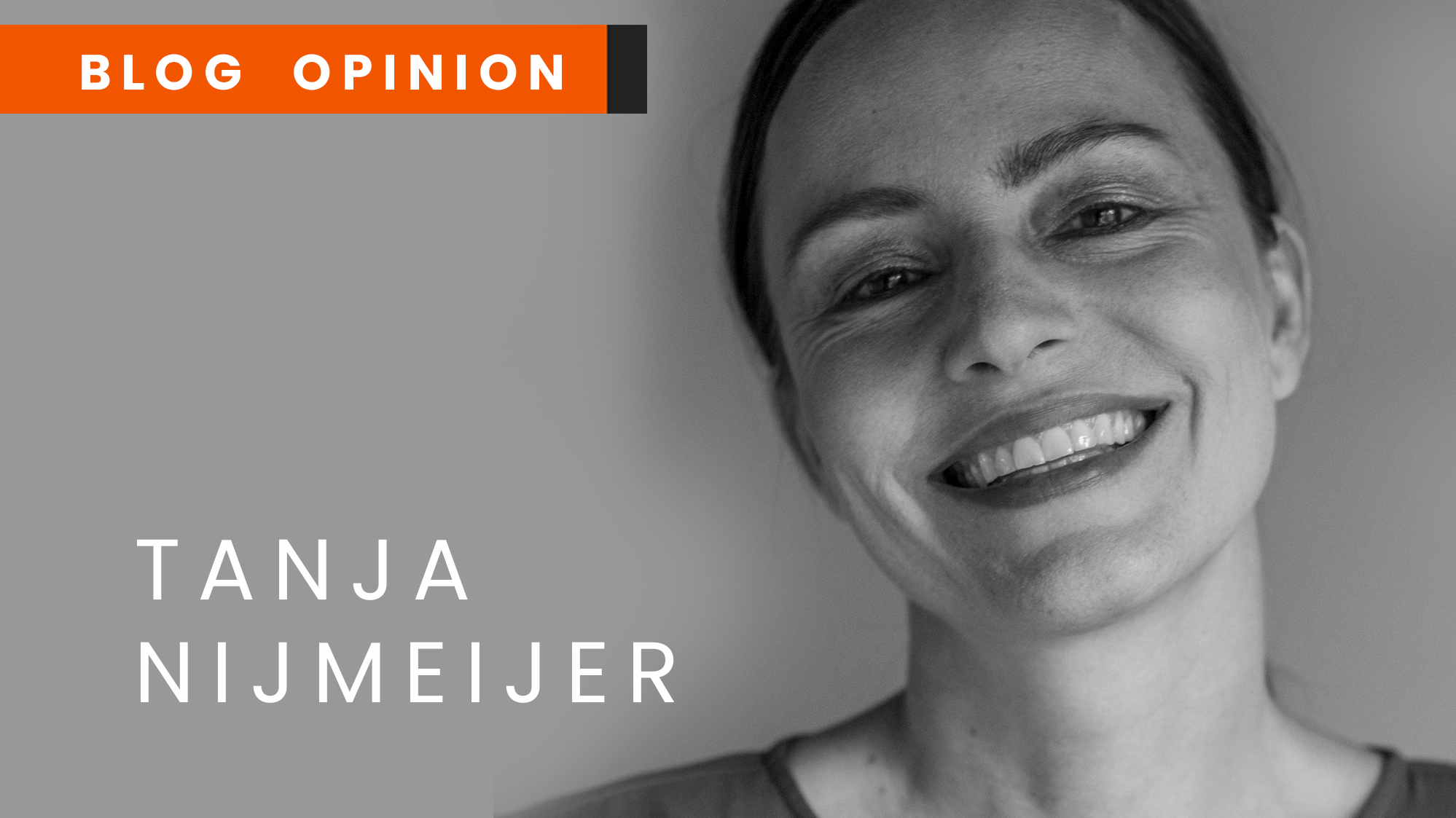PKK, the Workers Party of Kurdistan: many people know their name, but few really know what their struggle is about. I had the opportunity to speak with two representatives of the PKK’s Party of Women’s Liberation (PAJK), Zelal Dersim and Asia Dicle, about the situation in the Middle East, Islamic State, the role of the United States, the peace process with the Turkish government and, last but not least, the PKK struggle for freedom.
PKK in a nutshell
Kurdistan is a country that doesn’t exist officially. It is a region divided between four countries, Iran, Iraq, Syria, and Turkey. It lies between Arabs, Persians, and Turks. The Kurdish people are called “Arabs from Yemen” by the Arabs, “Turks from the mountains” by the Turkish people, and by the Persian people, they are considered their “ethnic alter egos”!
However, the Kurdish people do exist.

Kurdistan covers an area of 450.000 km2; the more than 45 million Kurds who live on this territory have had their own language and culture for many centuries.

In the second half of the XXth century, the Kurdish people started to develop the idea of national identity, and as a result of it, in 1978 the Workers Party of Kurdistan (PKK) was founded, whose main purpose was to obtain self-determination for the Kurdish people. In 1980, a military junta took over power in Turkey and put the members of PKK who were in the country, in jail. That is where armed resistance began in 1984.
In 1999 the PKK announced its first ceasefire. It lasted until June 1, 2004, when the PKK decided to renew hostilities again. From 2009 to 2011, there was a secret peace process with Abdullah Öcalan, PKK’s President, which, in spite of not being the first attempt at peace, was the most serious attempt. Öcalan published his “Road Map to Negotiations” in 2011, which was used during this peace process as a guide to the democratization of Turkey and a solution to the problem of the Kurdish people. Erdogan (now Turkey’s president, prime minister by then) said he agreed 95% with the “Roadmap to negotiations“. However, no official response to it was given by the government, because of which Öcalan, in 2011, decided to abandon the negotiations.
By the end of 2012, Erdogan said his chief of intelligence services was carrying out secret talks with Öcalan again. After months of negotiating with the Turkish government, Öcalan sent a letter to the people which was read during the March 2013 Newroz celebrations in Diyarbakir (Kurdistan). In his letter, Öcalan called for a ceasefire, which included withdrawal from Turkey. He also called for an end to the armed struggle. The PKK, on April 25, 2013, announced that it would start to withdraw all its forces from Turkey to Northern Iraq. The second phase would include constitutional and legal changes towards the recognition of human rights of the Kurds which would start simultaneously with the withdrawal.
TN: The two organizations, FARC-EP and PKK, are carrying out a peace process at this moment…
Asia Dicle: Yes. In 2012, there were negotiations between Öcalan and representatives of the Turkish government, which resulted in the retreat of PKK troops from Turkey. Something very particular about this peace process is that the representatives of the Turkish government are permanently changing.
Until the year 2000, the ones in charge of the peace process were always nationalist powers; that is why they used to send representatives of the army, who never accepted that there was a political problem there. In 2002, the AKP (the Islamic Justice and Development Party) won the elections and so became in charge of the negotiations; that is when the secret intelligence services started talking to Öcalan. With the AKP, there was no ceasefire, they were looking for a solution to weaken the PKK. Öcalan, in 2009, decided to leave the peace process, he said that they were not being efficient enough and that they were wasting his time.
In 2009, there were local elections and the Kurdish political party (DTP) won with an overwhelming majority. As a response, the Turkish state began a large-scale police operation, arresting thousands of politicians, trade unionists, journalists, students, and women organizations, in one word, everybody was suspected of having links with PKK.
Right now, in 2014, Öcalan is talking to the Turkish government again. At least, Öcalan can receive Kurdish politicians who are in Parliament, he can send messages to the parties, to the PKK, to us women; he can receive critics from us… For the first time, parliament is officially talking about the visits to Öcalan. They are discussing the Constitution. All these things are positive. As there had been so much secrecy about these peace talks, Öcalan said people should be informed from now on, and they agreed: a group of Turkish artists and intellectuals has been organized, who have to tell and inform the Turkish people about the peace process. This is all very positive, but of course, at the same time, they are supporting IS.

TN: What similarities and differences do you see between our peace process and yours?
Zelal Dersim: In both cases, the state has tried to deny the conflict. The Turkish government, during the first peace process, said there wasn’t a Kurdish conflict, because they said we didn’t exist. If you don’t exist, you don’t need any rights, either. After 2008, they changed their rhetoric; they said that indeed there was a problem, but that the problem wasn’t constitutional. Now, at least, they are talking about constitutional changes, but leaving intact the first three articles of the Constitution. And guess what the first three articles state: they say that in Turkey live only Turks, that there is only one flag, and that the state is only one state. This denies a priori the existence of the Kurdish people.
Asia: I think the demands of the two guerrilla movements are – in some way- pretty similar. We are asking for respect for the fundamental human rights of the people, not only the Kurdish but also the Turkish people. We want to implement a democratizing process, for the people to live in a true democracy, which I believe you want for Colombia, too. We also want a Commission to investigate and punish war crimes. We asked them to free the politicians that had been captured since 2009 and at least that part they accomplished in 2014. First, they were speaking about “pardoning” them, which was a real offense for them: what should they be pardoned for? Of course, there are still some 10.000 political prisoners left.
Zelal: We also want the military to leave Kurdistan and dismantle their military posts and bases. Instead, they keep on building more and more! They keep on preparing for the war, building military posts, and supporting ISIS, while they are discussing constitutional changes at the same time. They have a double strategy.
And what does the government ask from PKK?
Zelal: The only thing they are really interested in, is our weapons and to have us under control of the Turkish army.
How do the Turkish media treat PKK?
Zelal: The media are all in the hands of the Turkish establishment. The critical voices that exist, are facing permanent repression. Independent journalists are being threatened. The media use the same words, and the same ideas as the government, what the government says is the law for them.
There is now a mixed party, of Kurds and Turks, and they have some newspapers that are trying to be less biased, but on Turkish territory, you won’t find anything like that.
Asia: There has been a lot of demonization of the PKK forces in the media. For example, there have been many cases of paramilitaries who used to dress up like guerrilla fighters and attacked the civil population, just to show the country that PKK attacked civilians.
For many years, they called Öcalan a “baby killer”. Some paramilitaries killed a baby and said Öcalan had done that. Many years later, a paramilitary told on television that he was the killer. He literally said: “We entered the villages dressed up in guerrilla uniforms, we killed the babies and said it had been Öcalan”. Some of them told how they made the civilians eat their own feces, saying that it was the guerrilla fighters of PKK, calling them terrorists.
This is a type of disinformation that is almost impossible to fight against if you don’t control the mass media and you don’t have effective means of informing people about the truth.
This video shows how Jitem, a special secret force within the Turkish army, was created with the purpose of eliminating not just Kurdish political opponents, but, as was proved, also civilian Kurdish people. They are responsible for thousands of disappearances and massacres. Only a few years ago, mass graves have been discovered and opened after they were reported by informers.
